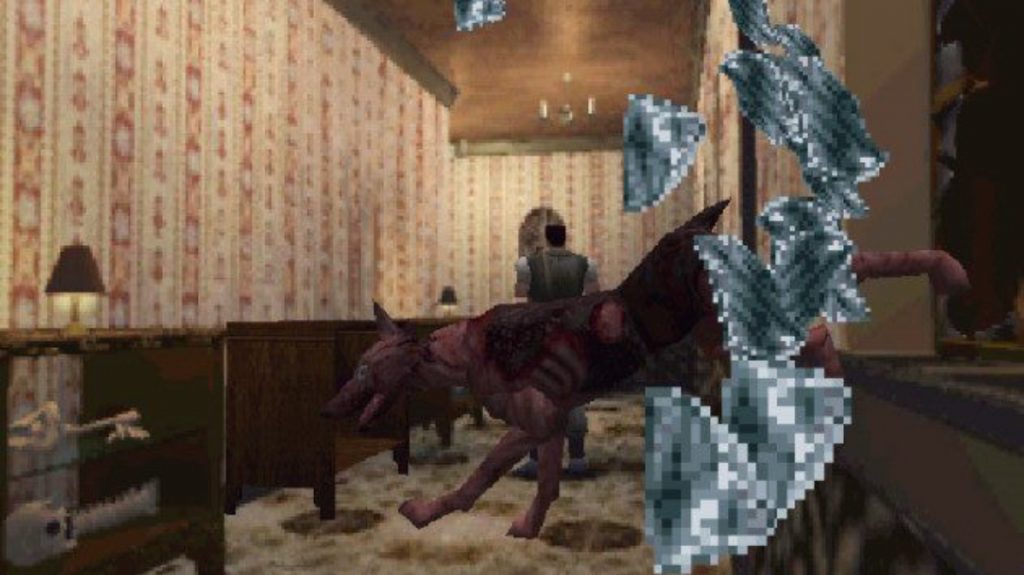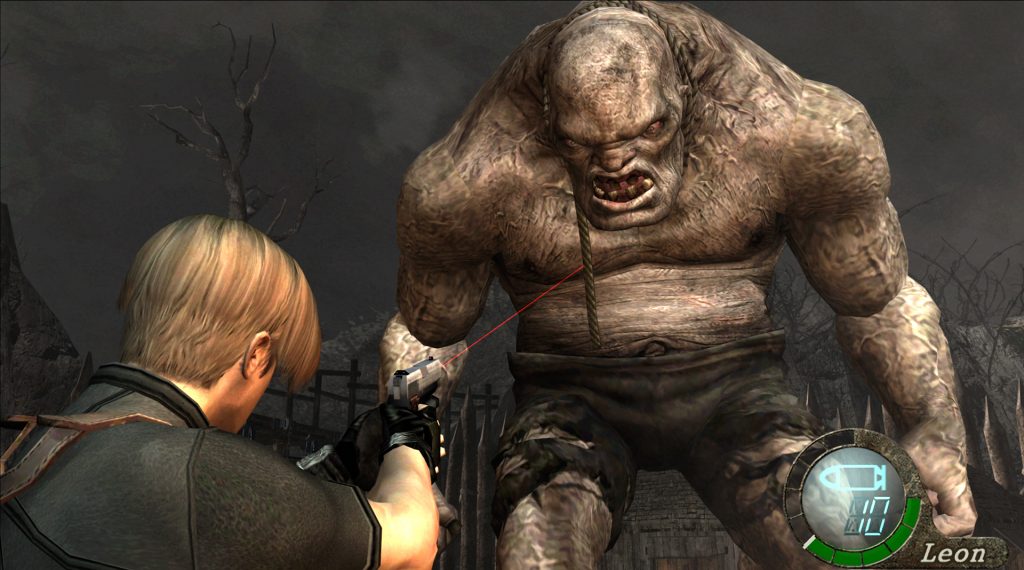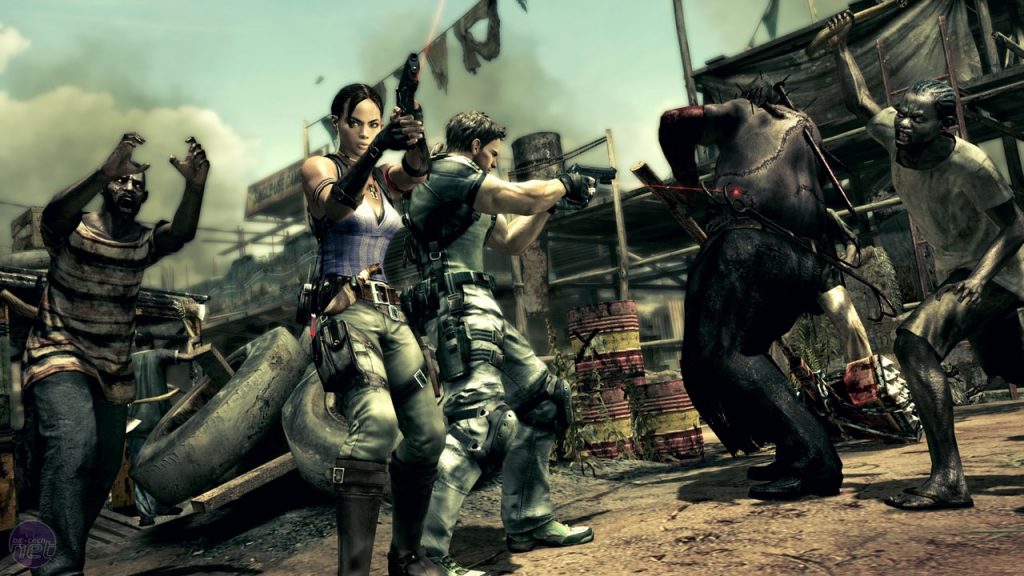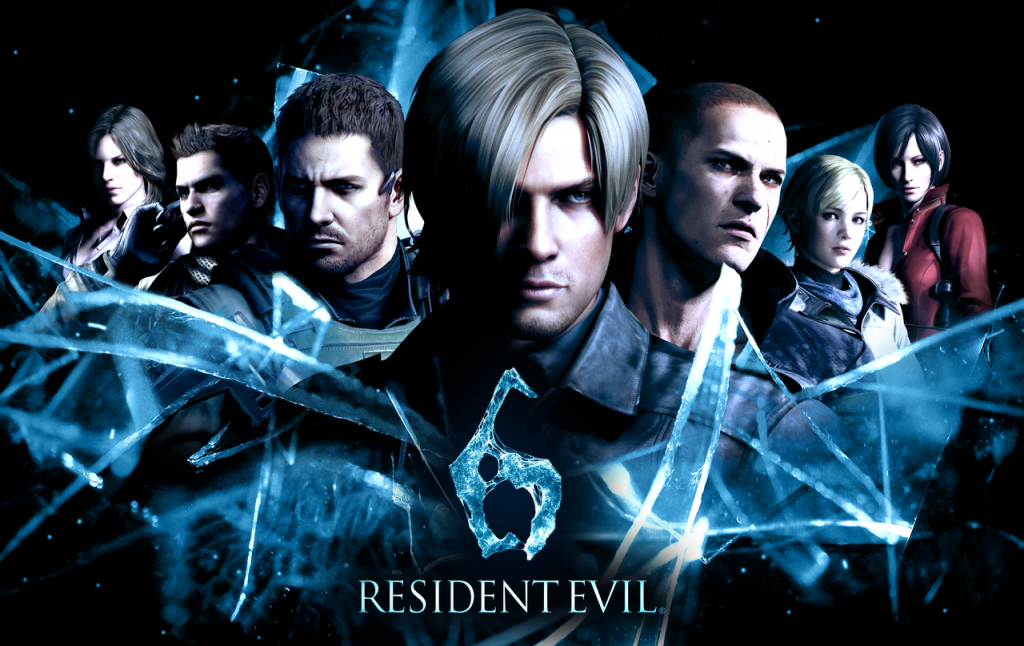“His palms are sweaty, knees weak, arms are heavy”. Eminem’s ‘Lose Yourself’ lyrics pretty much encapsulate the way I felt when I think about the first ever time I played Resident Evil. I can still visualise it now; zombie dogs crashing through the window pane, pursuing me down corridors, yearning to gnaw the flesh on my bones. I’m shuddering thinking about it.
Mr Burns has released the hounds again.
Some might say my parents should never have let a seven-year-old play such a game, but if they hadn’t, I’d have never fallen in love with the series. That was nearly twenty years ago now – since then the Resident Evil franchise has flourished, with numerous comics/novels, six films and a whole host of games that have ranged from brain-munching epics to some so bad we’d like to contract the T-Virus just to forget they existed. So what better way to welcome the latest member to the Resident Evil family than to take a look back at its long and illustrious history?
WHERE IT ALL BEGAN…
It was 1996, a memorable year for many; Nelson Mandela stepped down as the President of South Africa, George R.R. Martin published the first Game of Thrones Book and Tupac was gunned down in Las Vegas, dying six days later. Amongst all of that, Shinji Mikami and Tokuro Fujiwara gave birth to Resident Evil. It was the first survival horror game of its kind, later becoming Capcom’s biggest franchise with the series selling over 61 million units worldwide.
Personally, the first of the series will always be my favourite as it is where it all began; like being offered a gateway drug (or in this case experimental zombie virus) which made me crave more, nothing filling the void until I could get my next fix. The graphics may not have been the prettiest, but the fear it created was real and the gameplay was stimulating.

THE GOOD
Along with the iconic first instalment, there have been many fantastic entries in the series, with one of the best being the 2002 remake on the GameCube. Sometimes originals should be left alone, but this wasn’t just a remaster; it came packed with fresh content like a modified environment, altered puzzles, new abilities and an epic new boss bottle. It improved on the original so much, and just thinking about it makes me want to go on eBay and find a copy so I can play it again. It won’t replace the first as my favourite for nostalgia reasons, but it sure gives it a run for its money.
When the Mrs comes home after a night out on the lash and is wanting a kiss but all you can see is the vomit around her lips.
Another contender for the best title in the series is Resident Evil 4 (RE4), it took a risk, changing pretty much everything the franchise had built, but it paid dividends. RE4 met critical acclaim and won numerous Game of the Year awards. Moving away from the classic survival horror genre it helped launch, the new title would see the game direction heading down the route of an all-out shooter. Not just that, but moving away from the usual angle, RE4 changed the camera style to third-person, placing you directly over the shoulder of protagonist Leon Kennedy.
What really helped cement it as a classic was the gripping storyline and its gameplay mechanics, allowing you to interact with your environment like never before. Being chased by village farmers? Shoot them in the legs to cause them to stumble and fall so you can get away. Need to evade enemies? Dive through windows and knock down ladders so they can’t follow you. A lot of RE4’s ideas have been copied time and time again by new games, even as far as today. Oh, and who can forget facing bosses like El Gigante?
It’s a David vs Goliath type battle when El Gigante comes out to play.

THE BAD
Every journey though has its ups and downs. After RE4 was released the franchise kind of lost touch with its roots and they ventured further and further away from the survival horror genre. Resident Evil 5 tried to be brave again and introduce a new co-op mode, which was a great idea, but ultimately the game failed to deliver the goods.
It tried so hard to build on the foundations of RE4 – graphically it stepped up to the next level – but what really let it down was the AI if you were unlucky enough to play without a co-op buddy. The decisions were inconsistent and rather than being of any help, your AI partner was often a hindrance, causing you to have to repeat stages and making the overall length and pacing of the game more slow trudge than terrifying fight for survival. Let’s not forget that whole racism scandal, either.
It’s like a modern day Jack and Rose from Titanic, except instead of drowning in the sea it’s being chased by infected villagers.
Another entry which I personally think lacked a little je ne sais quoi was Resident Evil 3: Nemesis. It followed two hugely successful games and so it was always going to be difficult to match them, but apart from a terrifying boss who’d unexpectedly appear from nowhere, the game lacked any real fresh ideas.
Don’t get me wrong, it was certainly enjoyable, but if it weren’t for the Nemesis monster the game wouldn’t have offered much at all. The only positive I can take from it is that it lead the developers to realise that the franchise needed a new direction, and so it made way for the eventual conception of RE4, one of the greatest games Capcom have created thus far.
Much like Frankenstein, the Nemesis monster was just misunderstood, he’s actually very pleasant in real life.

THE UGLY
No game in the franchise failed to live up to the hype as much as Resident Evil 6 (RE6) though. The dev team worked tirelessly on the title; the idea was to go back to the franchise’s roots whilst keeping the aspects of the new games that many fans loved. But their downfall was they tried to please everyone at once and instead ended up pleasing hardly anyone at all.
What they should have done is focused on one area, put the needs of the many before the needs of the few. Instead, they just put too much content into try and keep everyone happy. Unfortunately, it didn’t work and RE6 never really felt like a finished article.
Just like a bad one night stand, let’s just pretend this never happened.

What Next for Resident Evil?
Well in a couple of weeks we’ll have Resident Evil 7: Biohazard on our doorsteps (if you’ve preordered it anyway). It promises to return to the core values the game originally held, less action and more horror. There will no doubt be changes again, one known adjustment being the introduction of the first-person view to coincide with the game’s compatibility with VR. It’s a style that works extremely well in horror games, as evidenced by titles such as Outlast, and if the demo is anything to go by it has the potential to be a massive hit.
The franchise has by no means been a failure, but it has had a rocky journey to the bright future it stands before today. If could best be described as a roller coaster ride – plenty of ups and downs, with a few corkscrews (and the odd horrifying accident. Looking at you, Operation: Raccoon City) thrown in for good measure.
The series certainly peaked when it hit RE4 and it can be difficult to follow that, so maybe we expected too much of the titles that followed. I just hope RE6 will inspire Biohazard much like Nemesis acted as the catalyst that was needed to push Capcom to develop RE4. Fingers crossed, anyway.
Much like Kunta Kinte wanted to, Resident Evil 7 will be going back to its roots.
For more feature articles, please click HERE.
2 comments
“It was the first survival horror game of its kind”. I assume when you say that you’re also implying that “Alone in the Dark was the first survival horror game of a different kind?”
Ah, monsters instead of zombies, that’s the kind 🙂
Just because it came out four years earlier, and hasn’t hit the dizzying highs of RE, doesn’t mean it didn’t happen.
Fair comment, I had completely forgotten about it. After all, I’d have been three at the time of its release. Still, it was definitely the game that successfully caused the genre to take off, if not the first of its kind.